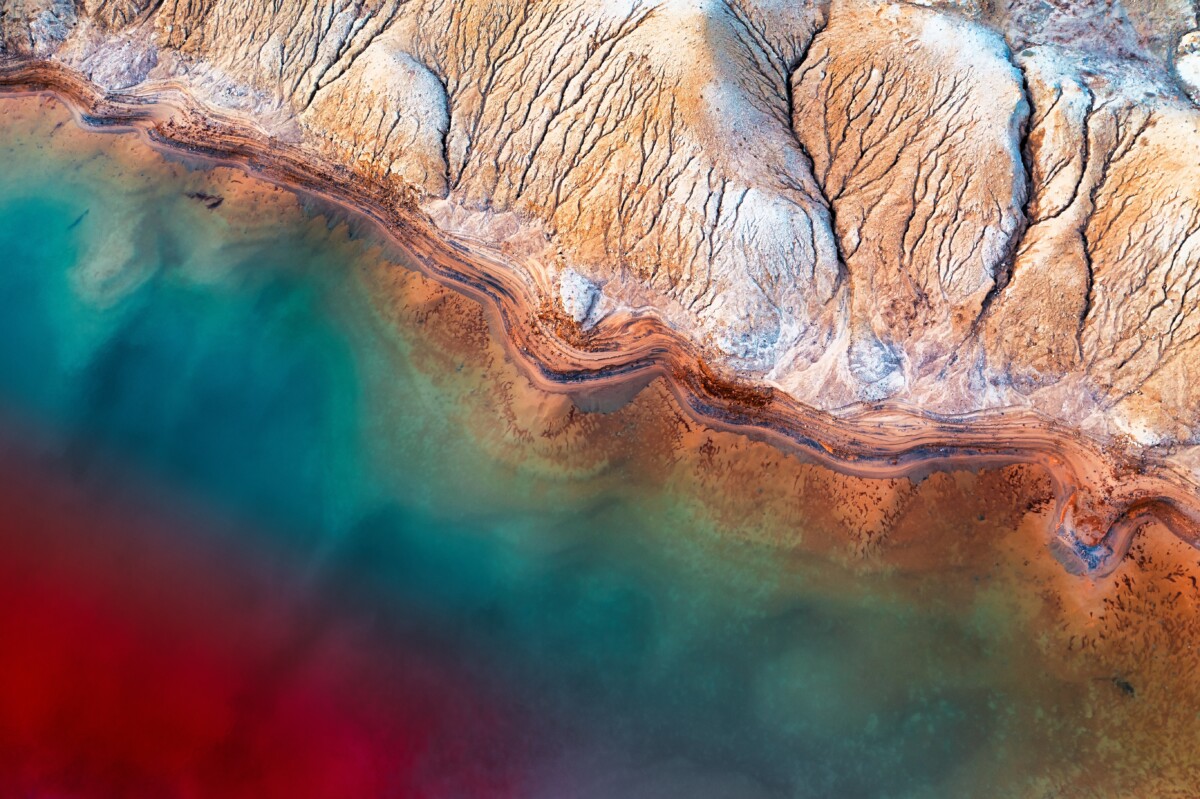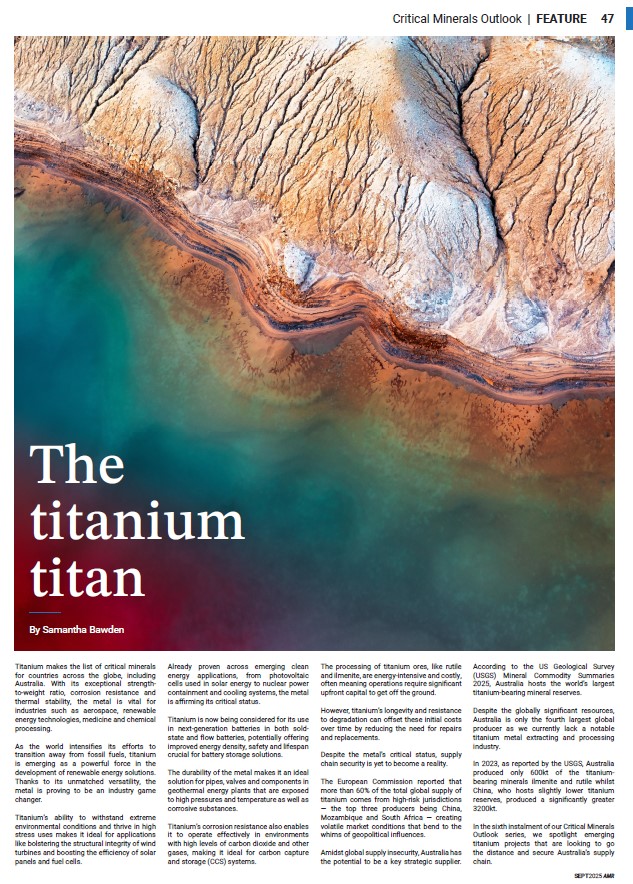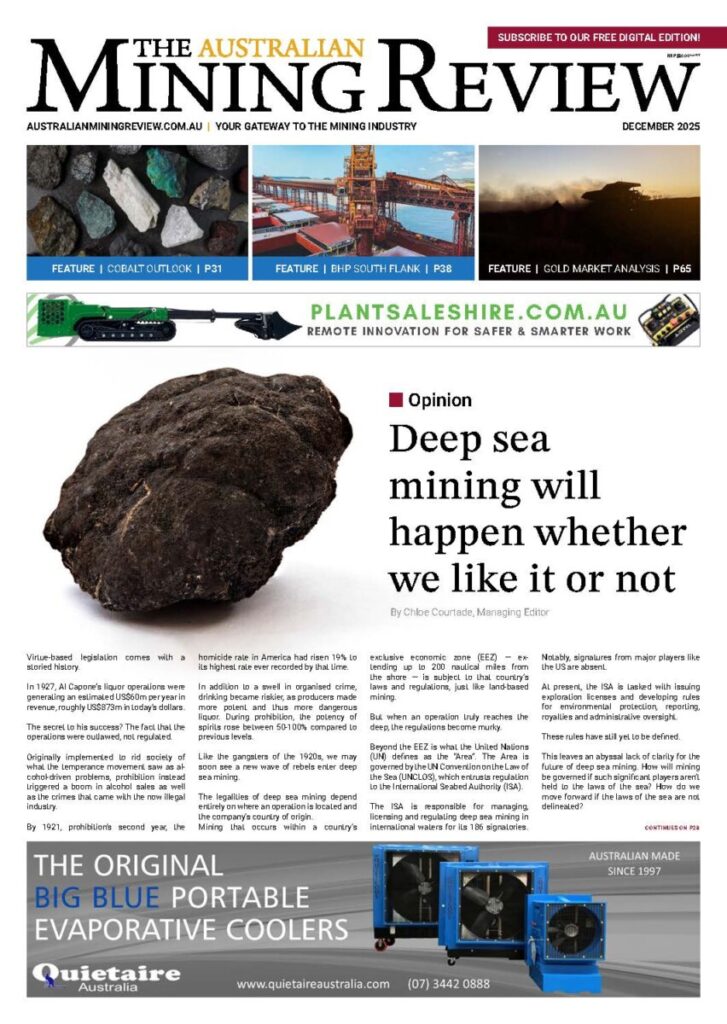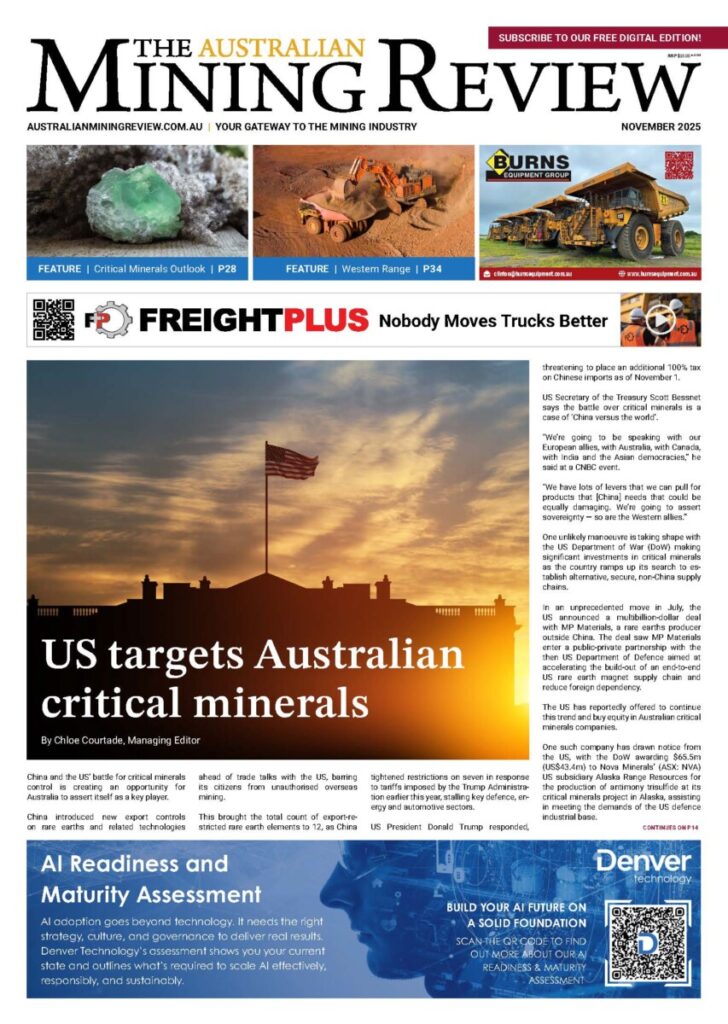The titanium titan

Titanium makes the list of critical minerals for countries across the globe, including Australia. With its exceptional strength-to-weight ratio, corrosion resistance and thermal stability, the metal is vital for industries such as aerospace, renewable energy technologies, medicine and chemical processing.
As the world intensifies its efforts to transition away from fossil fuels, titanium is emerging as a powerful force in the development of renewable energy solutions. Thanks to its unmatched versatility, the metal is proving to be an industry game changer.
Titanium’s ability to withstand extreme environmental conditions and thrive in high stress uses makes it ideal for applications like bolstering the structural integrity of wind turbines and boosting the efficiency of solar panels and fuel cells.
Already proven across emerging clean energy applications, from photovoltaic cells used in solar energy to nuclear power containment and cooling systems, the metal is affirming its critical status.
Titanium is now being considered for its use in next-generation batteries in both sold-state and flow batteries, potentially offering improved energy density, safety and lifespan crucial for battery storage solutions.
The durability of the metal makes it an ideal solution for pipes, valves and components in geothermal energy plants that are exposed to high pressures and temperature as well as corrosive substances.
Titanium’s corrosion resistance also enables it to operate effectively in environments with high levels of carbon dioxide and other gases, making it ideal for carbon capture and storage (CCS) systems.
The processing of titanium ores, like rutile and ilmenite, are energy-intensive and costly, often meaning operations require significant upfront capital to get off the ground.
However, titanium’s longevity and resistance to degradation can offset these initial costs over time by reducing the need for repairs and replacements.
Despite the metal’s critical status, supply chain security is yet to become a reality.
The European Commission reported that more than 60% of the total global supply of titanium comes from high-risk jurisdictions — the top three producers being China, Mozambique and South Africa — creating volatile market conditions that bend to the whims of geopolitical influences.
Amidst global supply insecurity, Australia has the potential to be a key strategic supplier. According to the US Geological Survey (USGS) Mineral Commodity Summaries 2025, Australia hosts the world’s largest titanium-bearing mineral reserves.
Despite the globally significant resources, Australia is only the fourth largest global producer as we currently lack a notable titanium metal extracting and processing industry.
In 2023, as reported by the USGS, Australia produced only 600kt of the titanium-bearing minerals ilmenite and rutile whilst China, who hosts slightly lower titanium reserves, produced a significantly greater 3200kt.
In the sixth instalment of our Critical Minerals Outlook series, we spotlight emerging titanium projects that are looking to go the distance and secure Australia’s supply chain.

























